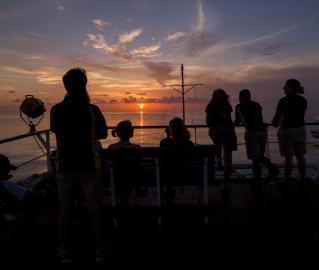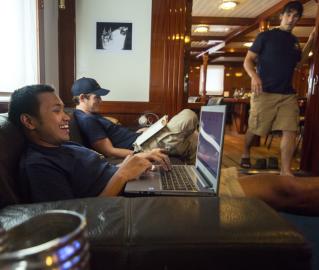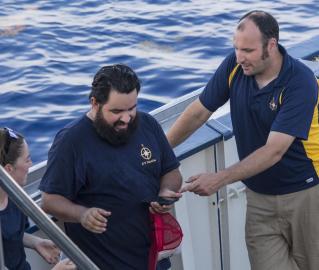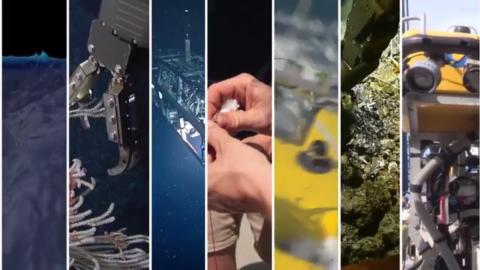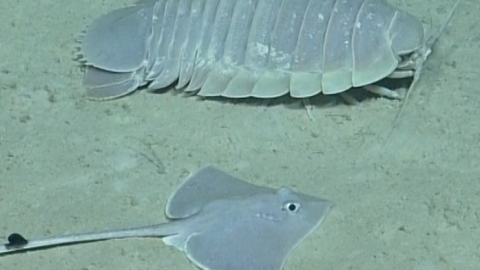Flashback: ECOGIG 2013
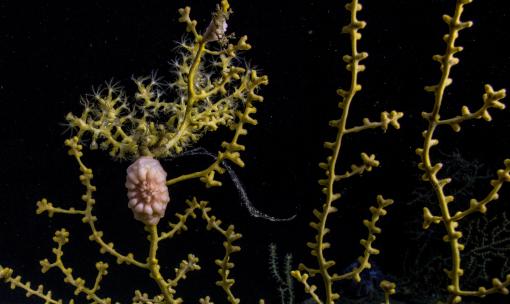
Do some of the coral sites Nautilus has visited in the past few days look familiar? It might be because we stopped at many of the same locations during last year's cruise with the ECOGIG project (learn more about them here). ECOGIG is now in its fourth year studying the effects of the 2010 Deepwater Horizon oil spill on coral in the Gulf of Mexico, and in their second year with E/V Nautilus. By visiting the same sites each year they can track the recovery (or lack thereof) of coral at various sites over a period of time to judge the potential longterm effects of the spill on the region's biology.
Here are some photo and video highlights from last year's dives - check them out and get a taste for the mindblowingly awesome biology video we might have coming up for the rest of the cruise.
Before the 2013 cruise even began lead scientist Dr. Erik Cordes spoke to us about goals and expectations for the leg.
PHOTOS: Coral Imaging 2013: Working with the BeastCam
June 24th, 2013 was a particularly exciting day for our biologists - check out these photos of tubeworms, crabs, fish, and more.
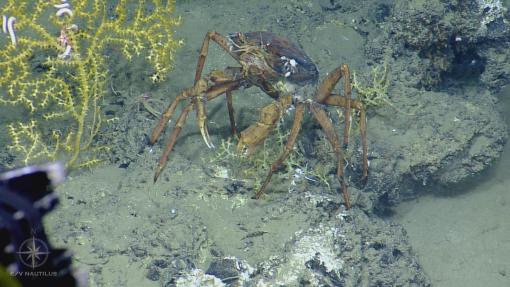
PHOTOS: Amazing Invertebrates of Deepwater Gulf Coral Sites
Throughout the cruise our team was amazed at the diversity of life in between the branches of coral, but this dive really hammered home the importance of the associated biology at coral sites.
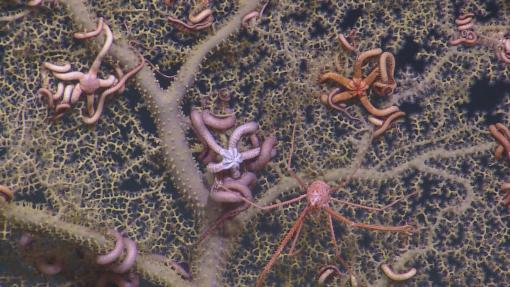
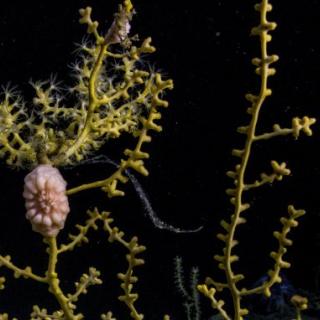
Straits of Florida
This cruise will focus on the discovery of new cold-water ecosystems and improved understanding of underwater geological hazards and processes. The Straits of Florida is a trough that separates the Florida Peninsula from Cuba and the Great Bahamas Bank. Due to the differences in geological, oceanographic, and chemical processes within this region, the deep water contains some of the greatest species richness in the Atlantic Ocean.
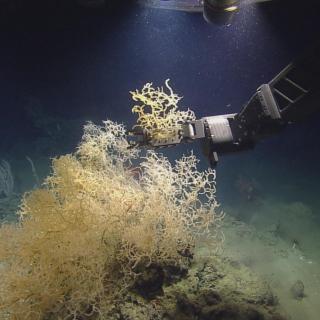
Ecosystem Impacts of Oil and Gas Inputs to the Gulf (ECOGIG)
The ECOGIG expedition is part of a larger research program focused on examining the ecosystem-level response to oil and gas in the Gulf of Mexico. This research group, the ECOGIG Consortium, is made up of scientists from a wide variety of disciplines studying current flow, ocean chemistry, microbial activity, deep-sea coral communities, and everything in between.
